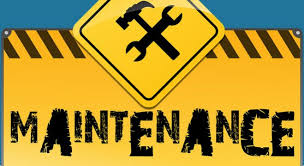A to Z of Maintenance Best Practice
Why Choose this Training Course?
Leading companies view effective maintenance management as a high leverage contributor to business profitability, through its impact on equipment capacity, product quality, health, safety and environment, and the cost of production.
This comprehensive 5-day course will benefit both qualified new professionals, as well as experienced professionals who might need to refresh their skills. It covers the fundamentals of modern Maintenance Management and provides a guideline on how to establish best practice maintenance.
What are the Goals?
- To provide a comprehensive guide to maintenance management best practices.
- To equip participants with the necessary understanding, techniques and tools to establish a framework for maintenance best practice in their organisations that will contribute to maximum business success.
- To provide an opportunity to discuss the application of these best practices.
Who is this Training Course for?
It is recommended that all Production, Maintenance, Reliability, Engineering management and technical support staff attend this high-level management training course.
How will this Training Course be Presented?
This course will be facilitated by an experienced maintenance specialist and will be conducted as a highly interactive work session (as opposed to lectures), encouraging participants to share their own experiences and apply the course material to real-life situations. Seminar size will be limited in order to stimulate discussion and efficiency of subject coverage. Each delegate will receive an extensive reference manual, as well as case studies, while worked out solutions will be handed out to the delegates on conclusion of group discussions. Throughout the course, delegates will be encouraged to identify what they can do to enhance Maintenance Management in their organisations.
The Course Content
Day One: An Overview of Key Maintenance Management Processes
- Introduction to Maintenance Management
- Evolution in Maintenance Management
- Maintenance Management Approaches
- Approaches to Improvement
- World-class Maintenance Management
Day Two: Maintenance Management Policies and Processes
- Structure and Policies
- Work Management Process
- Maintenance Policies and Guidelines
- Maintenance Task Estimating and Logistics Planning
- Maintenance Scheduling
- Maintenance Work Control
Day Three: Routine Maintenance and Failure Management Programme
- Failure Modes and Effects Criticality Analysis (FMEA)
- Failure Management Policies
- Implement Failure Management Programme
Day Four: Maintenance and Asset Management Strategy
- Maintenance Management Strategy
- Life Cycle Asset Management
- Life Cycle Cost Concepts
- Maintenance Performance Measurement and Analysis
- Maintenance Cost and Performance Control
Day Five: Continuous Improvement in Maintenance Management
- Engineering, Production & Maintenance Teams
- Benefits of Integrated teams
- Computerised Support of Maintenance Management
- Total Productive Maintenance Concepts
- Operations Excellence
- Framework for Achieving Best Practice

